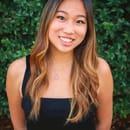Hooray! You’re now vaccinated against COVID-19, giving you plenty of reasons to celebrate (safely)! As more people begin to get vaccinated, more questions emerge regarding the do’s and don’ts to best protect yourself and others.
What does it mean to be fully immunized?
The term “fully vaccinated” means that you have received all the doses of the respective vaccine and allowed your body the proper amount of time to produce antibodies.
When you get the vaccine, your body’s immune system learns how to fight the virus. After the first shot, memory cells are produced, which can generate plasma cells and antibodies — but these are temporary. In order to produce long-term protective antibodies, the body needs the second dose (in a two-dose series vaccine) and two weeks after the last shot to build full immunity. Before the two-week mark, the body can still be susceptible to the virus because the body may not have had enough time to develop adequate protection, so it’s important to continue following CDC guidelines.

Pfizer-BioNTech
Number of Doses Needed: Two
Time Required After Last Dose: Two Weeks
Moderna
Number of Doses Needed: Two
Time Required After Last Dose: Two Weeks
Johnson & Johnson
Number of Doses Needed: One
Time Required After Last Dose: Two Weeks
Thus, if you received the two-dose series of the Pfizer-BioNTech, you are fully vaccinated two weeks after the second shot. However, if you have only had one shot in a two-dose series or if the two weeks after your last shot has not yet passed, you are not yet fully vaccinated and should continue wearing a mask and social distancing. But remember, regardless of your vaccination status, the best way to protect yourself and others is by following all CDC guidelines.
What can you do once you’re fully vaccinated?
- Gather with other fully vaccinated people without wearing a mask or staying six feet apart.
- Gather inside a home or private setting with unvaccinated people of one other household without wearing a mask or staying six feet apart.
- Travel domestically within the US without a pre- or post-travel test.
- Travel domestically without quarantining after travel.
- Forego quarantine after being exposed to COVID-19, unless you begin experiencing symptoms.
What should you keep doing even though you’re fully vaccinated?
Protect yourself and others by continuing to wear a mask, maintain a six-foot distance from others, wash your hands frequently, and avoid medium to large crowds and poorly ventilated areas. These guidelines should be followed especially when in public and gathering with unvaccinated people. In addition, you should still watch out for COVID-19 symptoms — if you are experiencing symptoms, you should get tested and stay home.

We’re still learning about COVID-19 and the vaccinations.
While we know that prevention steps (like wearing a mask, avoiding crowds, and maintaining six feet from others) and vaccines are effective at preventing the spread of COVID-19, we are still learning about vaccine efficacy against variants of the virus and how well it reduces transmission. Protect yourself and others by engaging in safe activities. For updates and more information, visit the CDC website.



